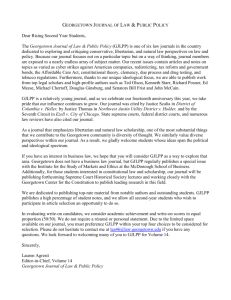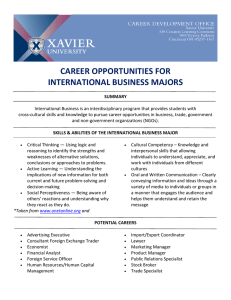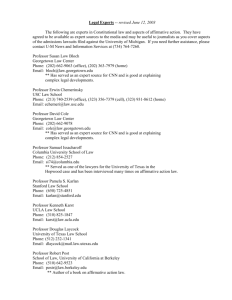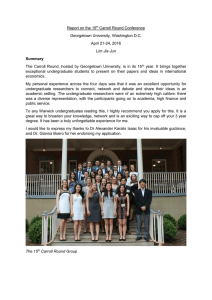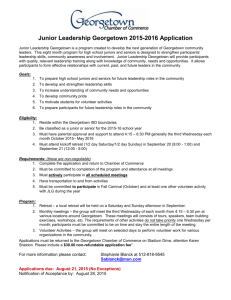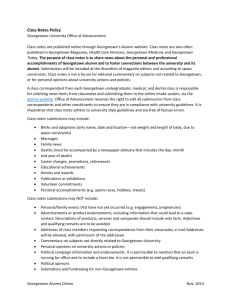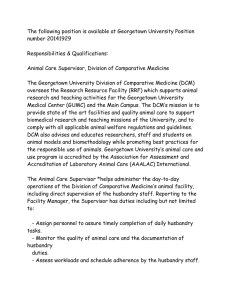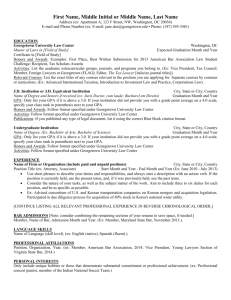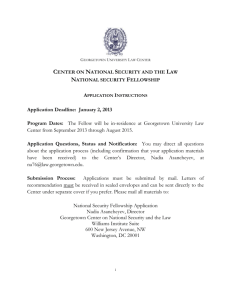learning goals worksheet
advertisement
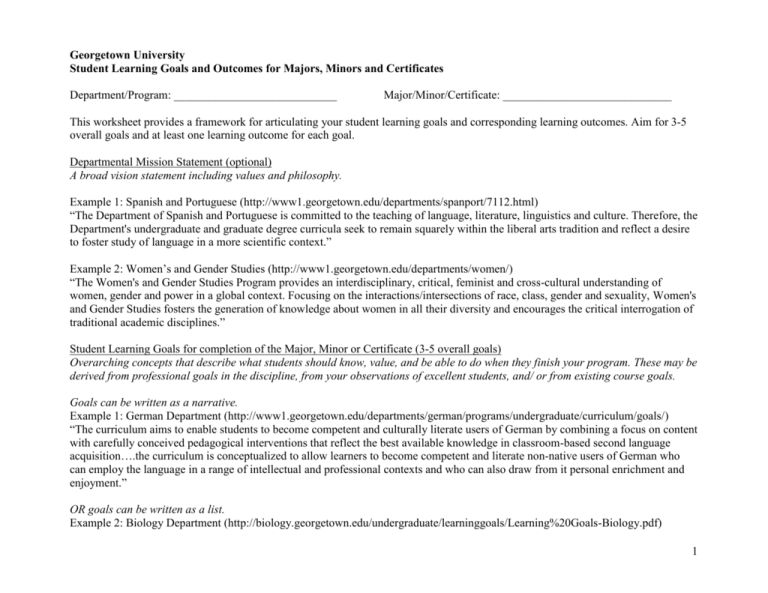
Georgetown University Student Learning Goals and Outcomes for Majors, Minors and Certificates Department/Program: ____________________________ Major/Minor/Certificate: _____________________________ This worksheet provides a framework for articulating your student learning goals and corresponding learning outcomes. Aim for 3-5 overall goals and at least one learning outcome for each goal. Departmental Mission Statement (optional) A broad vision statement including values and philosophy. Example 1: Spanish and Portuguese (http://www1.georgetown.edu/departments/spanport/7112.html) “The Department of Spanish and Portuguese is committed to the teaching of language, literature, linguistics and culture. Therefore, the Department's undergraduate and graduate degree curricula seek to remain squarely within the liberal arts tradition and reflect a desire to foster study of language in a more scientific context.” Example 2: Women’s and Gender Studies (http://www1.georgetown.edu/departments/women/) “The Women's and Gender Studies Program provides an interdisciplinary, critical, feminist and cross-cultural understanding of women, gender and power in a global context. Focusing on the interactions/intersections of race, class, gender and sexuality, Women's and Gender Studies fosters the generation of knowledge about women in all their diversity and encourages the critical interrogation of traditional academic disciplines.” Student Learning Goals for completion of the Major, Minor or Certificate (3-5 overall goals) Overarching concepts that describe what students should know, value, and be able to do when they finish your program. These may be derived from professional goals in the discipline, from your observations of excellent students, and/ or from existing course goals. Goals can be written as a narrative. Example 1: German Department (http://www1.georgetown.edu/departments/german/programs/undergraduate/curriculum/goals/) “The curriculum aims to enable students to become competent and culturally literate users of German by combining a focus on content with carefully conceived pedagogical interventions that reflect the best available knowledge in classroom-based second language acquisition….the curriculum is conceptualized to allow learners to become competent and literate non-native users of German who can employ the language in a range of intellectual and professional contexts and who can also draw from it personal enrichment and enjoyment.” OR goals can be written as a list. Example 2: Biology Department (http://biology.georgetown.edu/undergraduate/learninggoals/Learning%20Goals-Biology.pdf) 1 1. 2. 3. 4. 5. Integration of new knowledge into existing intellectual frameworks Engagement with scientific inquiry Representing and interpreting data in quantitative and statistically meaningful forms Communicating scientific understanding in oral and written forms Appreciating the epistemology of science Learning Outcomes (at least one for every goal) Written as specific, measurable or observable student behaviors. Example 1: The Italian Department’s goals for language learning at the intermediate level within the major. Students will be able to: 1. Produce written texts that combine descriptions of peoples and places with narration of experiences and events 2. Produce written texts that inform, give opinion and make generalizations based on personal experience 3. Construct textual structures at a higher level than that required in Basic, such as introductions and conclusions Curriculum Map (optional) A visual guide to matching where learning goals are addressed in your curriculum and where gaps might exist. Course # 140: Intro to International Health 177: Epidemiology 441: Community Internship 444: Global Patterns 445: Globalization and Healthcare 450: International Health Practicum Goal 1: Critical Thinking X Example 1: BS in International Health: Goals and Curriculum Matrix Goal 2: Goal 3: Goal 4: Fuse Knowledge Contribute to the Experiential and Practice Well-being of all Learning/Social People Justice X X X X X X X X X X X X X X Goal 5: Analytical Skills Goal 6: Development of the Research Process X X X Additional steps of the full curricular assessment process include gathering data about student learning and using the findings to make curricular changes and improvements. More on this process can be found in the Georgetown Handbook for Assessment of Student Learning at http://assessment.georgetown.edu/media/Handbook.pdf. 2

